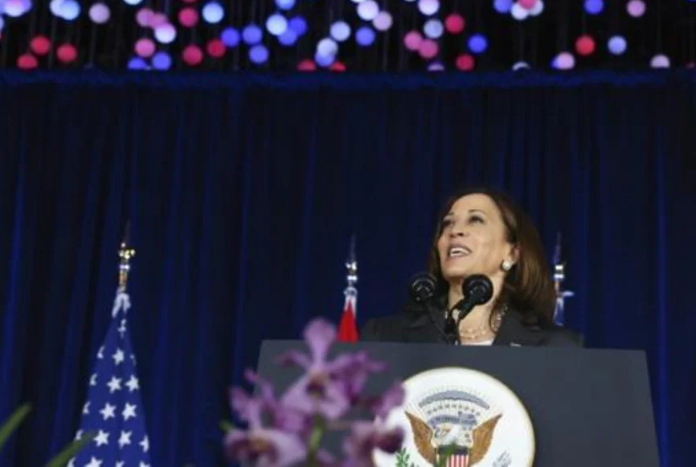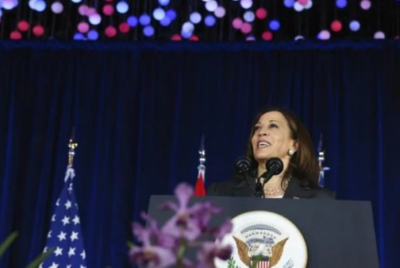U.S. Vice President Kamala Harris begins a visit to Vietnam on Wednesday, aiming to strengthen her country's alliances in countering China. However, the chaotic evacuation efforts in Afghanistan cast a shadow over this trip, stirring memories of the grim fall of Saigon in 1975. Harris will hold discussions particularly with Vietnamese President Nguyen Xuan Phuc and Prime Minister Pham Minh Chinh. They will address enhancing bilateral cooperation between Washington and the communist regime, as well as the challenges posed by Beijing in the South China Sea.
The Vietnamese leg of this tour follows a two-day visit to Singapore during a sensitive time for the United States. The fall of Kabul revived memories of the shocks from the Vietnam War and the chaotic evacuation of U.S. diplomats from Saigon in 1975. Harris will not be visiting this economic hub, now known as Ho Chi Minh City.
In contrast, she will focus on health security during the inauguration of a regional office of the U.S. Centers for Disease Control and Prevention (CDC) on Wednesday afternoon. After successfully containing the COVID-19 pandemic in 2020, Vietnam is currently facing a resurgence in infections due to the highly contagious Delta variant, similar to many other countries in the region. The vaccination campaign is progressing very slowly, with less than 2% of the population of nearly 100 million fully vaccinated. The United States had previously donated five million vaccine doses to Vietnam.
Tensions between Beijing and Washington remain a focal point. In Singapore, Kamala Harris accused China on Tuesday of continuing to "exert pressure, coercion, intimidation, and claim the vast majority of the South China Sea." China claims sovereignty over most of the resource-rich sea, through which trillions of dollars in maritime trade pass annually. However, four Southeast Asian countries—Brunei, Malaysia, the Philippines, and Vietnam, along with Taiwan—also have sovereign claims in the same region. China has been accused of deploying military equipment in the area, including missile launchers, while ignoring a 2016 ruling from an international court that found no basis for China's claims.
China responded to the U.S. Vice President on Tuesday, stating, "The United States can slander, criticize, and intimidate other countries without paying any price... The United States always uses the law to justify its selfishness and enhance its hegemony." Relations between the two countries are currently strained, with numerous disputes ranging from cybersecurity to competition for technological dominance, along with human rights violations in Hong Kong and Xinjiang. The Biden administration continues to adopt a similar confrontational approach to that of its predecessor, Donald Trump.
Reassurance
The U.S. official sought to calm fears that the escalating tensions between China and the United States would force countries closely tied to one of the nations to choose sides. Harris affirmed, "Our commitment in Southeast Asia and the Indo-Pacific region is not aimed at any country and does not intend to force anyone to choose between nations." Hanoi is attempting to navigate its own path between Washington and Beijing. The Prime Minister met with the Chinese ambassador on Tuesday, emphasizing that Vietnam will not "side with one country against another."
Kamala Harris arrived in Hanoi on Tuesday evening, three hours late due to a "mysterious health incident" in Hanoi, according to the U.S. Embassy. The term "mysterious health incident" refers to what is known as "Havana Syndrome," which includes unexplained symptoms that have affected U.S. diplomats in several countries. This phenomenon has led to unproven theories accusing Russia or other nations of using electronic equipment to inflict physical harm on these diplomats.




